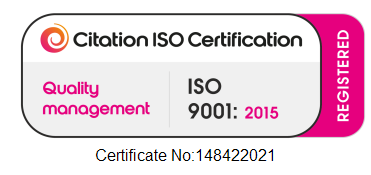In the evolving field of clinical research, electronic Clinical Outcome Assessment (eCOA) is redefining how data is collected, analysed, and applied.
This digital approach enhances data accuracy, improves patient experience, and accelerates trial efficiency, offering a more reliable alternative to traditional paper-based methods.
But what does this innovation look like in action? Let’s explore real-world examples of eCOA’s transformative role in clinical trials and the impact it’s making on medical research.
Case Study 1: Enhancing Asthma Management in Paediatric Trials
A recent paediatric asthma trial used an eCOA platform to monitor symptoms, medication adherence, and overall quality of life.
Children were provided with secure mobile devices to record their daily experiences — from inhaler use to symptom severity.
The outcome was clear:
- Compliance rates rose sharply.
- Data accuracy improved through real-time entries.
- Patients found the digital interface engaging and easy to use.
By transforming routine reporting into an interactive process, eCOA improved both data quality and patient self-management, setting a new benchmark for paediatric studies.
Case Study 2: Improving Pain Assessment in Oncology Trials
Pain evaluation is a cornerstone of oncology research. In one cancer study, participants used tablets preloaded with a pain assessment eCOA app.
They logged pain intensity, medication intake, and daily quality-of-life scores, which were instantly transmitted to research teams.
This enabled:
- Faster identification of pain-related issues
- Early intervention and treatment adjustments
- High-quality, consistent datasets
The eCOA system streamlined data collection, reducing delays often caused by manual reporting and ensuring that patients’ real-world experiences informed timely medical decisions.
Case Study 3: Boosting Adherence in Cardiovascular Research
Medication adherence is vital for chronic conditions. In a cardiovascular trial, researchers implemented an eCOA smartphone app that reminded patients to take medication, track missed doses, and log daily activities.
The eCOA system:
- Increased patient accountability
- Captured lifestyle factors affecting adherence
- Provided actionable insights for intervention
This approach helped researchers design targeted engagement strategies, improving compliance and overall study success.
STK Life Case Study: Tailored Device for Remote and On-Site ePRO Data Collection
Client: Global Clinical Research Organisation (CRO)
Objective: Develop a reliable device for remote and on-site ePRO data collection
Project: STK X3
To meet the CRO’s requirements, STK Life engineered the STK X3, a custom-built eCOA smartphone optimised for clinical environments.
Key Features of the STK X3:
- Customised Hardware: Built for secure and stable eCOA performance.
- Long-Term Support: 5-year warranty and lifetime software updates.
- Custom Software Integration: Seamless compatibility with clinical trial apps.
- User Interface Customisation: Simplified workflows for patients and clinicians.
- Remote Management: Integrated MDM (Mobile Device Management) for full control.
- Secure SIM Configuration: Data-only connectivity for confidentiality.
- Global Certification: Approved for import in over 80 countries.
- Outstanding Reliability: Near-zero device failure in field operations.
This specialised device empowered the CRO to collect ePRO and eCOA data seamlessly, boosting trial efficiency, data integrity, and patient compliance across multi-site studies.
For more information, explore secure mobile devices for research data collection that meet global compliance standards.
Frequently Asked Questions about eCOA in Clinical Trials
How does eCOA improve data quality compared to paper methods?
eCOA eliminates transcription errors and manual entry issues by enabling real-time digital validation. Data is instantly captured, stored, and transmitted securely, reducing delays and improving accuracy.
Can eCOA be implemented in all clinical trial types?
Yes. eCOA adapts to various study designs — from drug development to medical device evaluations — and supports both on-site and remote data capture.
How does eCOA affect patient experience?
Participants find digital interfaces intuitive, accessible, and less burdensome. eCOA enhances engagement and compliance by allowing flexible, device-based data entry.
For trials involving healthcare environments, explore smartphones built for healthcare and clinical environments designed for secure, continuous use.
What are the cost implications?
While setup costs may be higher, eCOA reduces data management, cleaning, and monitoring expenses in the long term, making trials more cost-efficient.
The Future of eCOA in Clinical Research
The evolution of eCOA is accelerating alongside advances in AI, wearables, and machine learning. Soon, eCOA will merge with predictive analytics and continuous monitoring for real-time insights into patient well-being.
Just as wellness technologies—like the health optimisation programs offered by Viva Wellness Drip Madrid help individuals track their physiology and recovery, eCOA provides clinical researchers with dynamic, patient-centred data that enhances outcomes and accelerates innovation.
By adopting eCOA, researchers unlock a future where data is smarter, faster, and more human-focused—transforming the quality and speed of medical discoveries.


